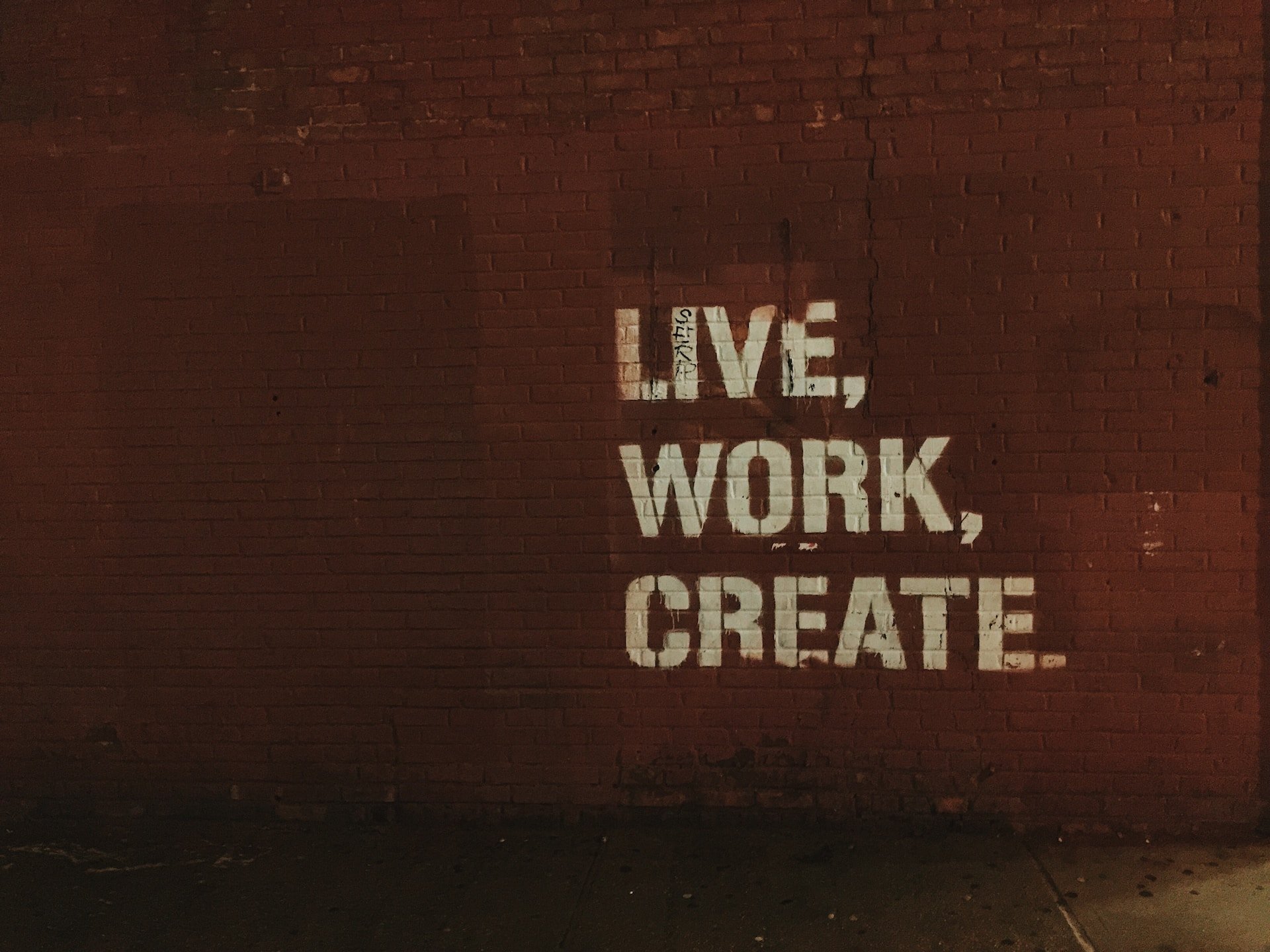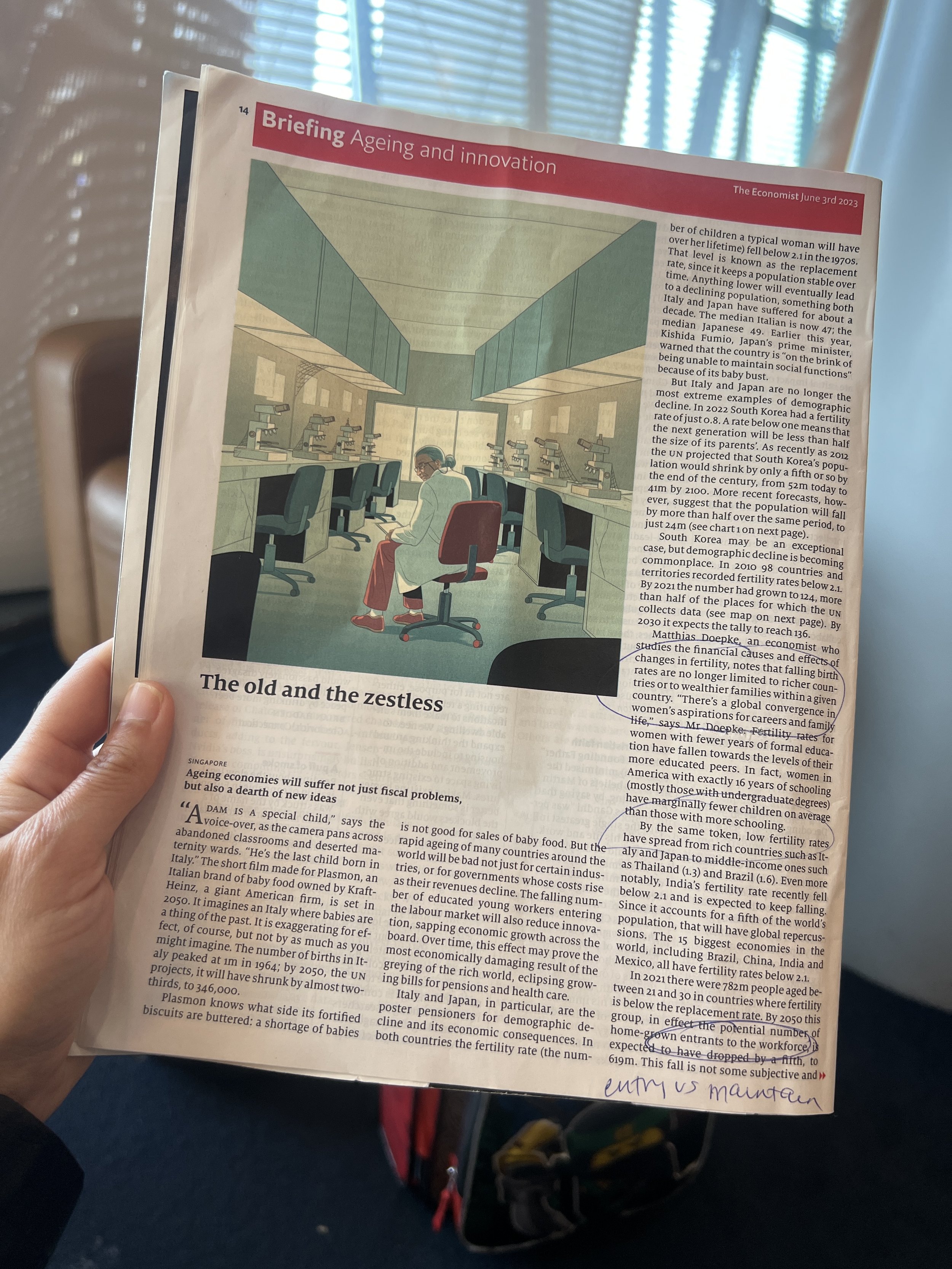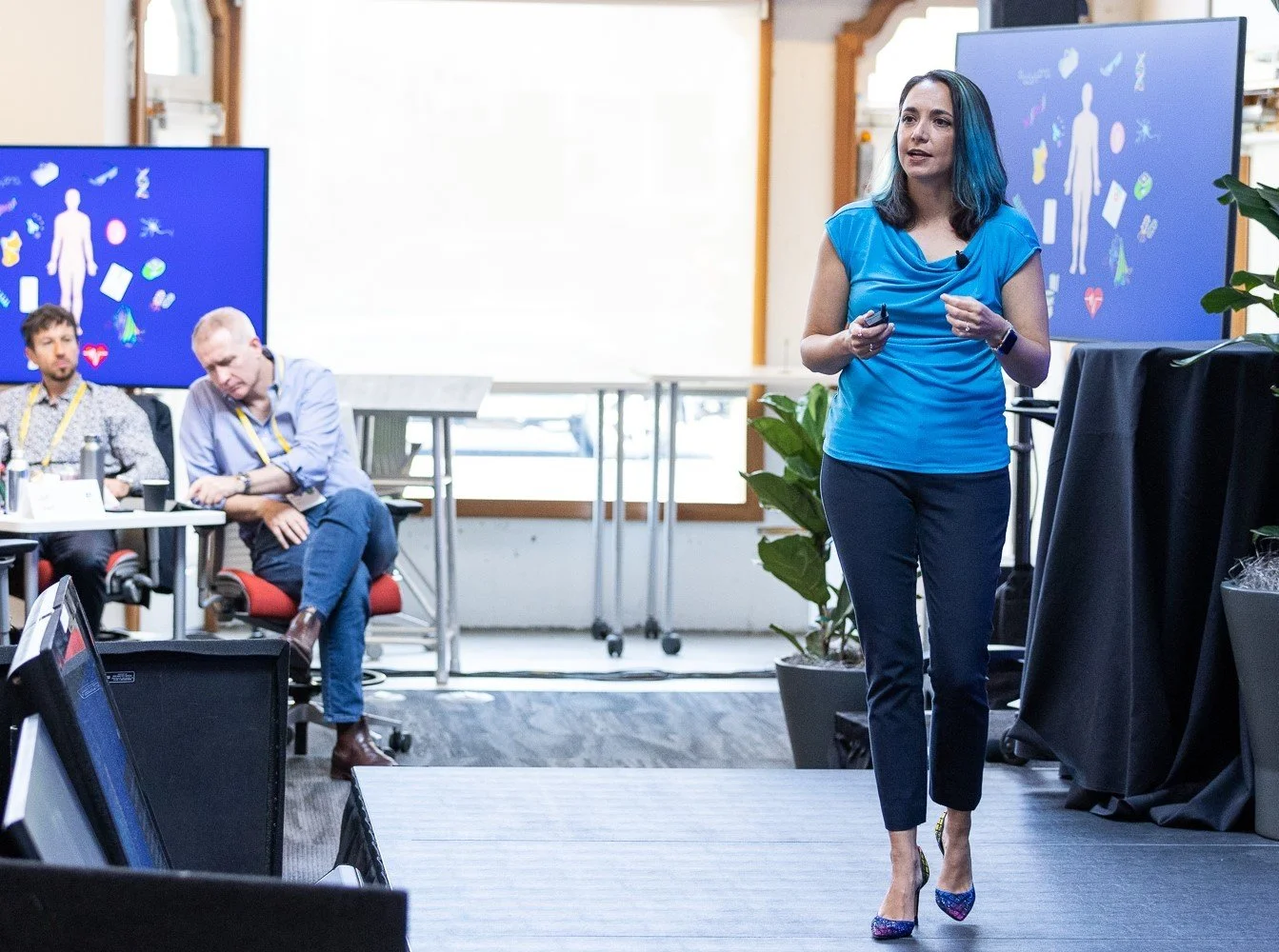Redefining 'Work' in a Longevity Future: Thriving Beyond Traditional Retirement
Image credits: Jon Tyson via Unsplash.
Our world is rapidly changing, whether we’re talking about longer lifespans, exponential technologies, the fight against climate change, and more. That’s why as a scientist and futurist, I believe that the stories we tell, the systems we build, and the ways we assign value are three factors that will hugely impact the futures that we create together. Here’s an example of this idea from something I read a few weeks ago.
Reading the June 2023 edition of The Economist.
The cover of The Economist magazine for the week of June 3, 2023 featured the haunting image of an abandoned, too-short playground slide. The title appeared in bold capitals: THE BABY-BUST ECONOMY. The subtitle also teased the disturbing conclusion that would emerge in the issue’s Briefing: “How declining birth rates will change the world.”
Cue the apocalyptic soundtrack! Yes, there are reasons to believe that falling fertility rates—and not just in rich countries—will dramatically shift the landscape of how we work, save, spend, and retire. But The Economist’s Briefing in this issue overlooks a major metatrend that I believe will mitigate many of the predicted negative impacts of shrinking young populations around the world.
Here’s the key sentence that made me sit up straight and focus:
“An ever greyer population will mean higher spending on public pensions and health care, but there will be fewer people of working age to pay the taxes required.”
Two paragraphs later came this seemingly reasonable claim:
“Many economists believe that a smaller working population will push down interest rates in real terms (meaning, after accounting for inflation), because there will be fewer investment opportunities and a large stock of savings accumulated by those in or near retirement.”
Can you spot the flaw in these two sentences? Put simply, the author assumes that although lifespans (and ostensibly healthspans) will lengthen, people will continue to exit the workforce at the traditional age of retirement, somewhere in the range of 62-65 years old.
💡 I believe that the reality will be far different, particularly for people who find meaning in the ways that they earn their money.
Rather than only expecting a drastically shrinking workforce, I think that we need to prepare for a future that includes:
💡 Longer careers
💡 More variation in the roles, employers, and industries in an individual’s career
💡 Variation over time in work intensity, with periods of low intensity permitting upskilling, reskilling, and even entirely new educational opportunities to enable an individual to move to another industry or problem space
💡 The ability to “retire” from traditional employment while continuing to meaningfully contribute to families and to society at large
💡 Multigenerational teams in which age does not necessarily directly map to “seniority” (notice the bias in the term!).
Image credits: RDNE Stock Project via Pexels.
I discussed some of these ideas in my recent appearance on the Futurized podcast with Dr. Trond Undheim.
This idea about multigenerational teams may help ease the tension—highlighted in this article from The Economist—between the perceived “fluid intelligence” of the young and the “crystallized intelligence” of the older. The daunting (even existential) challenges of the future will require as many types of “intelligence” and divergent thinking as can possibly be brought to the table.
💡 That means that we need to learn to value diversity in chronological age as well as diversity in gender, race, socioeconomic background, life experience, and neurobiology.
Image credit: Kampus Production via Pexels.
Choosing between fluid and crystallized intelligence is a false choice. The world needs both. So does your company.
The stories that we tell around “work” and “retirement” will be key to navigating the drastically different future that I sketched above. We can already see how cultural differences in these stories drive society-level reactions to changes in the retirement age around the world. Are these reactions about the ability to access benefits? Or are they deeper responses to how we define truly living, and whether—and how—our work fits into that definition?
I think we need to go deeper as we tell our stories of the future, and our places in it.
About Tiffany
Dr. Tiffany Vora speaks, writes, and advises on how to harness technology to build the best possible future(s). She is an expert in biotech, health, & innovation.
For a full list of topics and collaboration opportunities, visit Tiffany’s Work Together webpage.
Get bio-inspiration and future-focused insights straight to your inbox by subscribing to her newsletter, Be Voracious. And be sure to follow Tiffany on LinkedIn, Instagram, Youtube, and X for conversations on building a better future.
Want to learn more about the Future of Health?
Check out my curated book lists.
You can support local booksellers using these links!
Disclosure: I am an affiliate of Bookshop.org where your purchases support local bookstores. I will earn a commission if you click through and make a purchase.
Donate = Impact
After a 19-day voyage to Antarctica aboard The Island Sky in November 2023, Tiffany has many remarkable stories to share & a wealth of insights to catalyze a sustainable future.
You can support her ongoing journey by making a contribution through her donation page. Your support will spread positive impact around the world, empower Tiffany to protect time for impact-focused projects, and support logistical costs for pro bono events with students & nonprofits.





